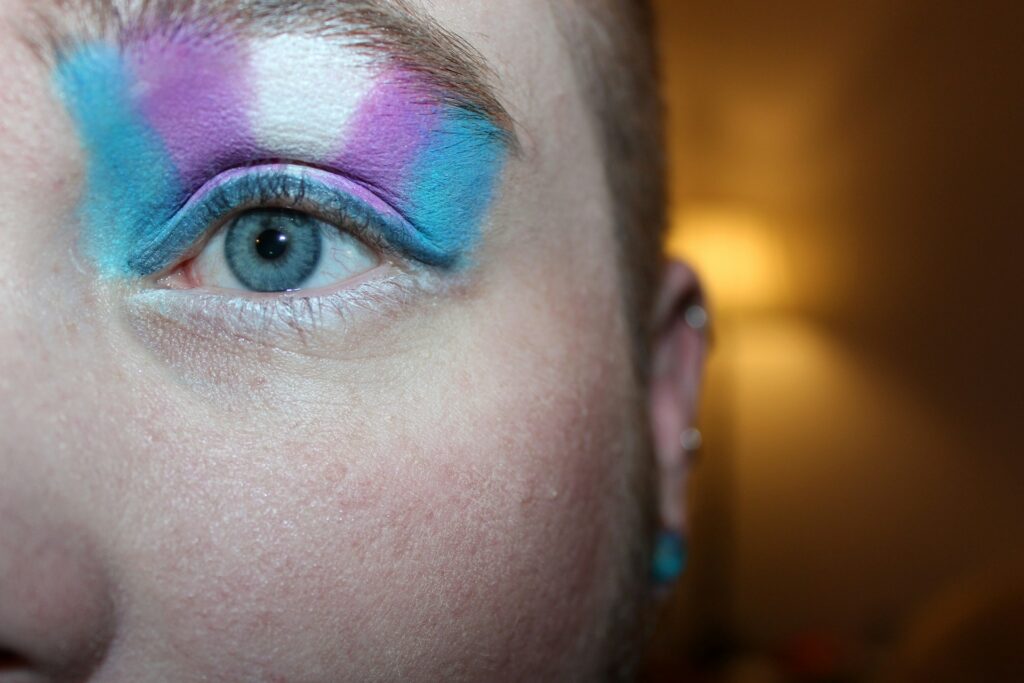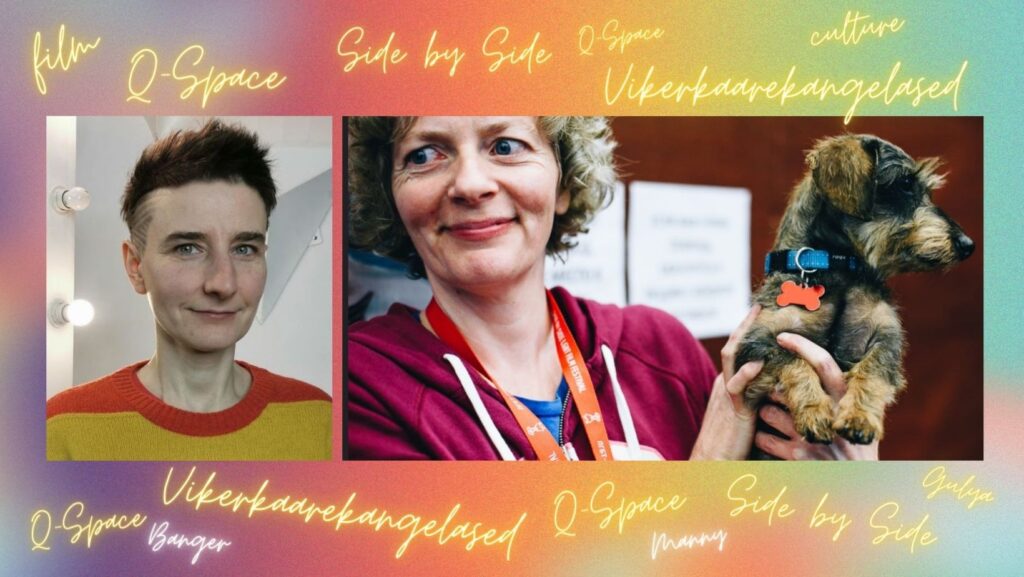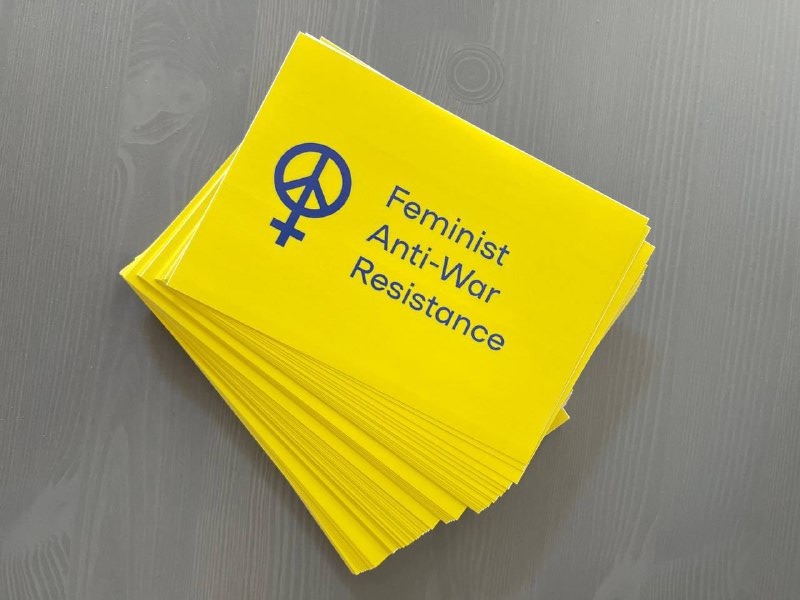Remedies for political loneliness
Ülase12 is a collectively organized, non-hierarchical social centre that places itself in the spectrum of leftist movement politics. Ülase12 is focused on practices that are linked with autonomist, queer-feminist, anti-fascist and non-capitalist politics and theory. Ülase12 is located in the street of the same name, next to the Cultural Factory Polymer and it has an unpredictable program of punk concerts, vegan dinners, queer parties, feminist movie nights and discussions on political topics. These events reflect the particular interests of the members of the collective and for that reason they vary accordingly from season to season.
At the end of May 2017, Ülase12 hosted 20 activists from Budapest, Kaunas, Helsinki and Tallinn. This networking meeting brought together young people who shared their practices and thoughts around the topics of queer-feminist politics, migration and social justice politics in its various articulations. This was an opportunity to learn from each other and to form contacts and friendships that might prove fruitful in the future.
Self-organised refugee activists
One of the most interesting contributions to the topic of migration was shared by the activists from the Right to Live demonstration (Oikeus elää) in Helsinki. This demonstration started in February 2017 as a means to protest deportations and the vulnerable living conditions of refugees and asylum seekers in Finland. It was initiated by Afghan and Iraqi refugees who, together with local Finnish supporters, established an ongoing demonstration next to the central railway station. Over many months, the demonstration endured several attempts by police and authorities to vacate this legal and legitimate opposition to the current state of migration policies in Finland. For example in July 2017, the Helsinki Pride march was instrumentalised in order to move the location of the demonstration away from central railway station. Despite declarations of solidarity from the part of Pride organisers, police evicted the demo on the day before the Pride under the pretext of “securing public order”, thus using the Pride march as an excuse to vacate the square. The demo then continued in front of Kiasma art museum until September. Throughout the eight months, a parallel protest tent organised by fascists was standing across the square or street from the Right to Live demo, attempting to intimidate and harass the refugee activists.

Stop Deportations campaign by Right to Live movement in Helsinki
The activists of the refugee protest shared information on the challenging practicalities of organizing a long-term protest with the involvement of people living in precarity: the organizing of shifts to hold the space in the city center, the negotiations between Iraqi and Afghan groups in terms of common goals and representation, raising funds to bring families from outside Helsinki to visit the demonstration, public relations with the media, negotiations with migration officials, city and police. They also discussed the direct impact for the organizers and visitors of the demonstration. Beyond policy changes and media pressure, having a stable meeting point has allowed for the creation of support networks that provide help with accommodation, transport and legal cases, but also with friendship and opportunities to celebrate. Through the common experience of political activism, refugees have found a reinvigorated sense of belonging. The demonstration has had tremendous empowering effects for the refugees. In addition to that, the demonstration has also created a wave of solidarization within Finnish society, changing the public discourse about migration politics in Finland. And not least importantly, a number of deportations have been hindered!
Absence of refugee women
From the feminist perspective, critical reflection about the Right to Live campaign arose in relation to the participation of refugee women. This is a complex question where practical conditions intersect with cultural patterns and gender-segregated arrangements. The modest participation of women in refugee protests is partly connected to the fact that the majority of refugees arriving to European Union are single men. However, women are often responsible for taking care of the children and the household and thus their ways of organizing tend to be more private. Tackling issues like this one is one of the potentials of bringing together activists involved in different types of politics, like migration and queer-feminism.

Radical queer-feminists in Helsinki Pride. Photo Ester Sall
In the context of our meeting, the aim to articulate an intersectional perspective in relation to migration and feminism, also led us to think about deportation practices affecting sex workers. It is a little known fact that deportation practices don’t affect only non-EU citizens. For example, in the Finnish deportation centers, a large number of detainees are Estonian citizens. Among them are many sex workers who tend to fall outside the attention of no-border activists, but also lack support from feminists.
In the debates about the current practices of activism around the issues of asylum politics and migration, it was pointed out that the focus of European groups on welcoming refugees constitutes a very eurocentric perspective. While most groups focus on supporting those who flee and on helping them to settle down, very little is done for those who choose to stay in war or unstable areas despite the hard conditions. This pattern does very little to provoke change of the conditions that originated the need to flee in the first place. From this point of view, migration does not only constitute an individual choice of survival, but a matter of collective responsibility and solidarity.
Similar countries, different Pride march
What does a word like “eurocentric” even mean? While inviting participants for this meeting, we were conscious of the fact that physical proximity does not immediately correspond with comparable social and historical conditions. This came across as very obvious when discussing the Pride march in Helsinki and Tallinn. A pride march was scheduled to take place in Tallinn in 2017 after ten years of deserted streets, and we wanted to take the chance to discuss a topic that has proven to be divisive in the queer community. However geographically close, the meaning and conditions of the Pride march in both cities remain idiosyncratic.

Tallinn Pride. Photo Nele Laos
While in Tallinn the march is constructed as a site of challenge to the status quo of invisibility, which means that part of the LGBT community fears the retaliation or argues that such a public display is not only unnecessary but counterproductive for normalization; in Helsinki the march is taken for granted and turned into a normalized site of commercialized leisure. While in Helsinki the queer counter-protesters try to block police and migration officers from taking part in the Pride march, the march in Tallinn welcomed any institution with the goal of increasing its size as much as possible. It remains to be seen if the pattern of the Pride march in Finland and other Western European countries will simply be copy-pasted in post-soviet context or whether other paths can be paved.
Healthy remedy for political loneliness
If much can be learned from activism in different contexts, the experience of sharing practices with activists from Emma Social Center in Kaunas was incredibly enriching. Like at Ülase12, they are multi-focus and combine punk concerts and queer parties with movie nights and presentations. Like us, they lack resources and struggle to mobilize a base that takes the role of organizing and not just that of a participant/consumer. But how jealous we felt! However small they are, their numbers still double ours, which allows them to diversify their activities, open the center several times per week and to organize protests. That makes their experience precious to us, as many of the challenges they face are very familiar: precarious living conditions, lack of politicization of the participants, poor culture of occupying public space, etc. And overall, regardless of advice and outcome, it is always a great pleasure to share a few hours of conversation with people who care about the same issues and face the same struggles that you do. Healthy remedy for political loneliness.

Emma center entry and house rules. Photo Emma center’s Facebook page
While most of the meeting was focused on updating ourselves about other contexts and on creating a network of affinities, we also discussed the practices of local initiatives. Kraam, a Tallinn-based feminist artist-run space and free shop, has been developing a Coffee Without Borders platform for a year. The goal of this initiative, inspired by a similar platform from Helsinki, is to offer a non-commercial meeting place for migrants in vulnerable situations. The space can be used for leisure, support and networking and it bears the potential for alliances and giving birth to other initiatives. For example, some of the organizers of the Right to Live demonstration met for the first time at the local Coffee Without Borders event in Helsinki which is organised by the Free Movement Network and the Helsinki Social Justice Association.
In Tallinn, the Coffee Without Borders space has been used to show movies, organize language-exchange groups and give presentations on migration, asylum and border politics. However, even though the goal is to offer support to migrants in vulnerable situations, it has proven a big challenge to reach them, so that they would have a chance to shape the contents of the platform. Bringing together activists from the Right to Live demonstration, the Queers Without Borders initiative in Helsinki and the Migrant Solidarity Group in Budapest, we also aimed to facilitate an exchange of ideas that would be useful in the local context of Tallinn. Of course, many strategies would need adaptation for the local context, where the number of refugees is far less numerous. Some of the main challenges for refugee self-organisation and solidarity activism in Estonia are caused by isolation: refugees are scattered across the country, they have few resources to move around and lack support networks.
No more lonely activists
Our networking meeting was overall an affective space where we had the chance to spend time with each other and to get to know not only each other’s practices, but also our differences. Activist work cannot be merely based on lonely ideas, but it is an outcome of interaction and solidarity. Eating and drinking together, going for walks and smoking breaks –whether you are into nicotine or not– provide the chances, however informal and unstructured, to get to like each other in some way, which is almost invariably a prerequisite to form alliances. It is however a slow process, full of breaks and surprises, but much more pleasant to walk in good company.











